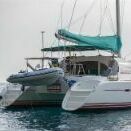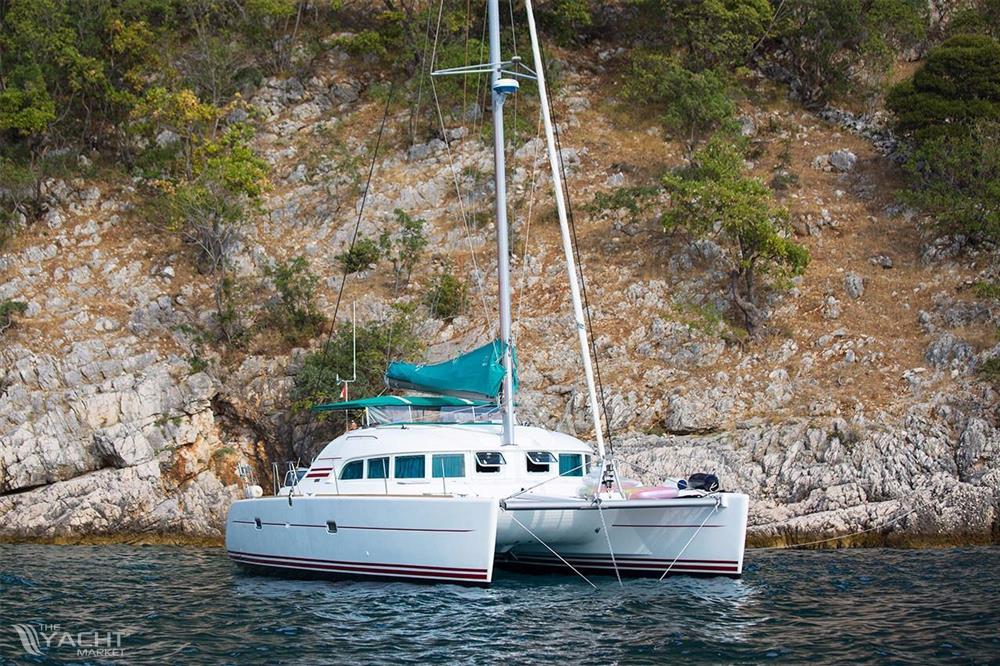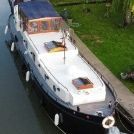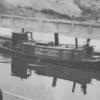-
Posts
41,846 -
Joined
-
Last visited
-
Days Won
129
Alan de Enfield last won the day on January 31
Alan de Enfield had the most liked content!
About Alan de Enfield
Profile Information
-
Gender
Male
-
Occupation
Porn Star
-
Boat Name
Which one ?
-
Boat Location
Floating
Recent Profile Visitors
65,101 profile views
Alan de Enfield's Achievements
-
My 'take' on this is that as a sailaway it is now classified as a 'completed boat' (to the stage it is sold at, and has to be fully compliant to whatever the build level is). Now that the RCD / RCR is 'for the life of the vessel' when the DIY owner fits out the boat (electrics, gas, etc etc) this is a major modification and the vessel (being built to the RCD / RCR and given a certificate) means that it now requires the fit out to be in accor dance with the RCD / RCR and hence needs a PCA. In previous times when the boat was sold with an Annexe IIIA, it was 'not an RCD/RCR completed boat'. The rules came in in mid 1998, so if it was built in the 1st half of 1998 (which of course it would be) it does not need RCD / RCR certification.
-
The answer is still NO. You can request, you can beg, cajole or even threaten, say its all bullshine, make inuendo - I don't care. I know my idea(s) would bring a considerable income in & I don't need your approval or agreement.
-
Indeed, it was simply to show the level of investigation they went into when deciding which remainder canals to retain, to dispose of or upgrade to Cruising canal. Two committees (North & South) were set up to review, and they considered everything from the legal costs if a canal was closed but a bridge or lock was left in existence and someone fell, to what responsibility they would retain for (say) a bridge that was an access bridge and couldn't be removed, responsibility for flooding if the canal was unable to take surface water, etc etc.
-
"(d) a new obligation imposed on the Board to deal with all waterways not in the category either of Commercial or Cruising waterways, i.e. the remainder (termed for the sake of convenience the ‘Remainder waterways”) in the most economical manner e.g. either retention, elimination or disposal, as most appropriate. (e) local and certain other statutory and charitable authorities were given powers to enter into agreements with the Board for maintaining or taking over any Remainder waterways or parts thereof and to assume full responsibility or (in the case of local authorities) for making financial contributions towards the cost of maintenance in inland waterways". "3.6.3. On the other hand the Board has certainly acquired or assumed obligations in the course of years from which it would now be extremely difficult, if not impracticable, to get free. Before deciding — in the case of a Remainder waterway, for example — that it could be closed or eliminated, consideration needs to be given in each case to the nature and extent of the obligations involved. These questions are reviewed in Chapter 15." Section 15 of the Fraenkel Report (20 pages) Reviews the staus of the remainder waterways, costs of maintaing them vs costs of closing them etc etc etc and is a 'good read'. The first of the 1974 reports was limited to 234 navigable kilometres and strongly recommenced that they be upgraded to the Cruising category, For the first group maintenance agreements bad already bean concluced:- Ashton and lower Peak Forest Canal (22.5 km, agreement pending), eyewash Canal (17 km), Grand Union Canal, Slough Arm (9 km), Monmouthshire & Brecon Canal (52 Km), Caldon Canal (28 km). The second group lacked agreamendt: - Birmingham Canal Navigations (82 km), being priorities 1, 2, 3.1 and 3.2 of the 1970 Working Party report, see paragraph 15.5.3), Grand Union Canal, Welford Arm (3km), Kennet & Avon Canal (9 km), Hamstead Locj to Hungerferd), The Board was unable to support the Council's recommendations for the second group “owing to thelr limited liabitity”. The summary shows a table of the costs. No miracles involved , just an outsider looking in with an open mind and identifying alternative sources of income from existing resources.
-
Have you realised that the 'management' under discussion is the Government ? (Following MtBs post 14 hours ago, and subsequent posts)
-
But, would it matter who the 'management' is, they only have so much income and too much needed to do with it. Result = rationing ! Maybe they should increase their income to match the required expenditure ? (I wonder how that'd go down with the public)
-

Overnight Mooring for the Etihad Stadium, Manchester.
Alan de Enfield replied to Sea Dog's topic in General Boating
If they are paying their £25 per night, giving the owner a 100% occupancy rate, I bet he's not worried if they never move out. -
I agree, I also am seeing information about the grant system, but I am not seeing any facts. How long was the term for the Rochdale ? What was the agreed payback for early termination ? Who was the grant paid to ? Did C&RT amend the staus of the canal ? etc etc
-
That is interesting background to the grant system but doesn't really move us forward as you have not actually indicated the conditions of grant for the 4 canals you name. If you were responsible for ensuring that the grant terms were met, you would presumably be aware of the grant terms. Did this include the purchase of land, or simply restoration of the old canal route ? What was the 'term' of each grant, how many years remaining ? Who was the grant with ? (the restoration group or C&RT) Did C&RT accept the grant terms when it was handed over to them ? Did C&RT officially change the status from Remainder to Cruising. Appreciate your input. I'm not seeing any 'facts' I'm seeing a general outline of how grants work.
-
-
Yes (ish) C&RT are obliged to keep Cruising waterways open and navigable. But all those remainder waterways that have been re-opened because of volunteers 'taking on the canal' etc can still be closed UNLESS they have officially been given cruising status. and are logged by C&RT as such. Or, if it has a condition in the grant, from (say) the Lottery, and then who has agreed to the condition C&RT or the Restorers ? Obviously all of the current 'rest' of the remainder canals can just be left to be abandoned, if C&RT so wish. Any canal which is not on the list of 'Commercial canals' or 'Cruising canals' is classified as a remainder canal - there is no specific list of remainder canals.
-
Yes. C&RT are obliged to keep open for navigation all canals listed as Cruising Canals. I have never seen any document stating how they can be 'delisted', and nothing that actually states an AoP is needed. The 1968 Act graded the Board's waterways into three categories:— ‘Commercial waterways’ to be maintained in navigable condition for use by commercial freight carrying vessels, ‘Cruising waterways’ to be maintained in navigable condition for use by powered pleasure craft, and ‘Remainder waterways’ to be dealt with in the most economical manner possible whether by retaining, developing, eliminating or disposing of them.
-
It is written in an act of parliament that if C&RT cannot justify keeping a canal open (there are some restrictions and qualifications) then they can close it, sell it or give it a way. The folks saying they cannot do it are guessing that when a canal has been funded by (say) the lottery that there will be conditions as to what can be done with it. No one has yet produced evidence to substantiate that perception. C&RT are under no obligation to 'take on' any canal that has been 'bought back to life' by volunteers etc, but they have done in the past.
-
You are so predictable. But, in the greater scheme of things it matters not what you think.
-
No - the real culprit is not the lack of Government funding (why should the Government pay to keep our playground open) it is simply a lack of funding. C&RT need to both manage their resources better and find alternative sources of income. If a company wants my advice, they can pay for it, they always have and I'm not changing that now. I retired in 2005 and happy to just be an onlooker. My Son is in the same business - he advises big international companies on M&A and market opportunities - he invoices his time out at US$1000 per hour. If they want to grow income, they are going to have to invest in some proper business advice.

















